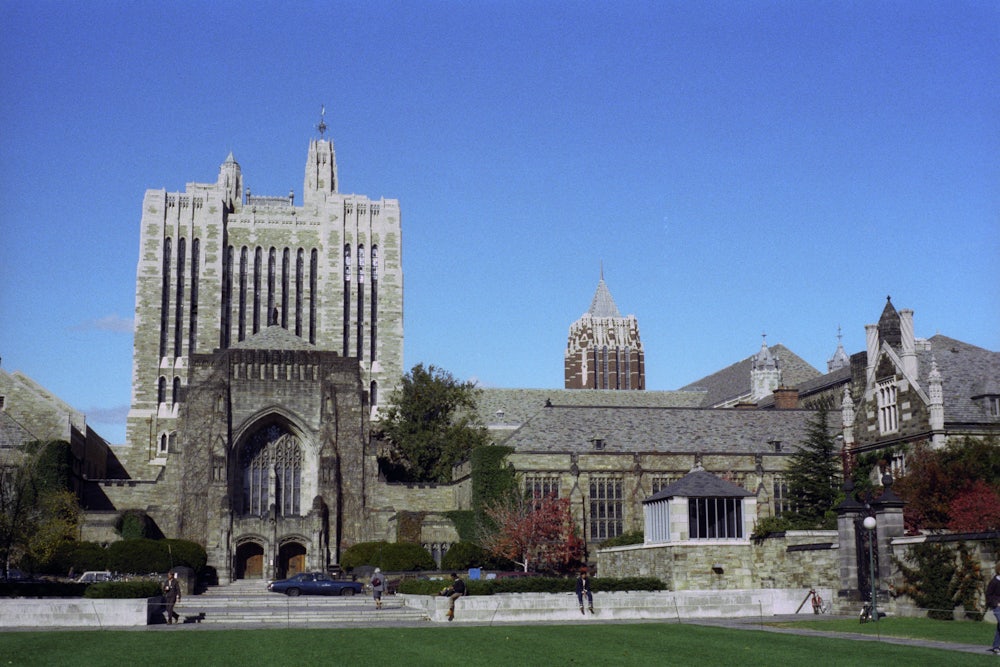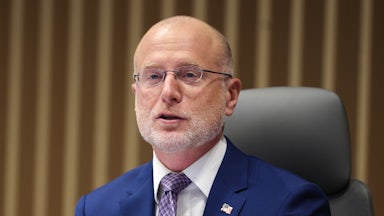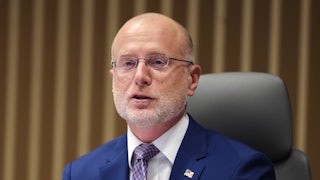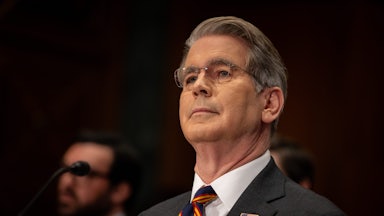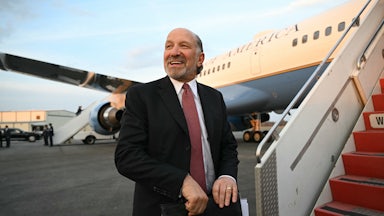Yale University has the most elite law school in America, an institution so central to the production of future Supreme Court clerks and legal bigwigs that, in the space of a few months last year, The New York Times, The Atlantic, and The New Yorker all published lengthy features about whether one of its professors served drinks to students at a dinner party. So it made the news last week when Yale Law School Dean Heather K. Gerken issued a public statement declaring that the school would no longer willingly participate in the influential U.S. News & World Report law school rankings, setting off a mini-cascade of righteous quitting as Harvard, University of California, Berkeley, Stanford, Georgetown, and Columbia quickly followed suit.
But there was something strange about the spectacle of Dean Gerken denouncing as “profoundly flawed” a rankings system that identifies Yale itself as the #1 law school in the country—an evaluation with which, one would assume, she wholeheartedly agrees. The other quitters share rarefied air as well: All are in the U.S. News top 14.
While the boycott was framed as a bold, egalitarian blow on behalf of legal education writ large, the practical effect of responding to Dean Gerken’s criticism would be an increase in the already lofty standing of Yale and its elite compatriots. That’s what happens when the nation’s top universities reject a rankings system that was essentially reverse-engineered to replicate a status hierarchy that the schools themselves created, and continue to embrace.
Importantly, Yale is not withdrawing from the rankings. It can no more prevent U.S. News from publishing its rankings than it can prevent The New Republic from publishing this article. Instead, Yale and its compatriots will refuse to provide the former newsmagazine with some of the data it uses to calculate each school’s annual standing.
But the biggest factor in the rankings, comprising 40 percent of each school’s score, is a pair of reputational surveys given to law school administrators, lawyers, and judges. Yale can’t stop other people from thinking it has the best law school and telling U.S. News. U.S. News is also free to change its methodology whenever it likes; it can simply stop ranking with data it can no longer acquire.
In critiquing U.S. News, Dean Gerken expressed particular ire about a provision that rates law schools based on the percentage of graduates who get jobs that require a Juris Doctor degree. Her concern is understandable. One of the odd things about Yale’s unassailable position as law school #1 is that it is famously uninterested in training people to become practicing attorneys.
Yale Law is really more the general interest apex point of the American educational meritocracy, in all its virtues and flaws. Working in the small world of Washington, D.C., politics and journalism, I can count a half-dozen Yale Law graduates among my friends and professional colleagues. They are some of the smartest, most dedicated people I know. None of them have practiced law a day in their lives. (Yale Law also produced J.D. Vance, who believes that Supreme Court decisions don’t count if Donald Trump doesn’t like them.)
But the fact that Yale is more focused on training people to think deep thoughts about the law, or ignore it entirely, doesn’t matter much for its ranking, because the job placement statistic only counts for 4 percent of its score.
Dean Gerken says that a heavy emphasis on grades and standardized tests, which count for 20 percent of a school’s ranking, “imposes tremendous pressure on schools to overlook promising students, especially those who cannot afford expensive test preparation courses.” Yale and Harvard, she notes, are the only law schools to provide financial aid entirely based on need.
Yet there is no evidence that Yale itself is using all that aid money to recruit promising students whose lack of expensive test preparation courses have disadvantaged them in law school admissions. Its students have the highest median LSAT and GRE scores in the nation, even better than archrivals Stanford and Harvard.
Dean Gerken also criticizes U.S. News for basing 5 percent of each school’s ranking on student indebtedness upon graduation. To justify this practice, the magazine cites a 2021 American Bar Association report, which found that “many new lawyers postpone major life decisions like marriage, having children and buying houses, or reject them outright, because they carry huge student loan debts.”
Gerken acknowledges this but complains that the U.S. News method does not give Yale credit for generous programs that forgive its graduates’ loans. “A far better measure is how much financial aid a law school provides to its students,” she says. Such a change in the rankings methodology would give law schools that load up students with crushing debt a free pass, while benefiting the very small number of schools with the enormous financial endowments necessary to give generous aid and forgive loans—like, for example, Yale.
As legal commentator (and Yale Law grad) David Lat notes, some people have attributed more nefarious motives to Dean Gerken, claiming that the boycott is an attempt to preemptively delegitimize the rankings before Yale loses its decades-long chokehold on the top spot in the face of various controversies, dinner party–related and otherwise. That could be true. But even taken at face value, the boycott seems like an attempt to promote Yale Law’s rare advantages and peculiarities under the guise of taking some sort of bold step on behalf of legal education as a whole.
U.S. News did not invent the legal profession’s obsession with rankings. Federal judges explicitly and unapologetically limit the coveted clerkships that lead to six-figure signing bonuses at elite law firms to graduates of top schools. Of the 74 clerks that U.S. Supreme Court Chief Justice John Roberts has hired, 47 were graduates of Harvard or Yale. Nearly all the rest came from a top 14 school.
If U.S. News altered its ranking in a way that elevated other law schools at the expense of the existing top 14—and again, Dean Gerken’s proposed reforms would, if implemented, seem to elevate Yale even higher, perhaps to number one with bullet—would Roberts (J.D. Harvard, magna cum laude, 1979) change his preferred source of clerks? Of course not. Real power does not bend to the whims of defunct weekly newsmagazines. Someone else would step in and invent a way of reidentifying the top 14, perhaps by counting the number of Supreme Court clerkships each school’s graduates receive.
It’s true that debt is a huge problem for lawyers. The way to fix that isn’t tinkering with rankings. It’s lowering law school tuition. Yale may provide generous aid to low-income students. But its published list price of $96,681 per nine-month academic year for tuition, books, and room and board helps establish the market that other, less wealthy law schools follow.
It may indeed require three years of deep contemplation in Cambridge or New Haven to adequately prepare for a lucrative career managing corporate mergers and acquisitions—we’ll have to take their word for it—but most practicing lawyers have normal jobs in criminal, civil, employment, and family law. The idea that all lawyers need three years of extremely expensive education after completing a bachelor’s degree is a relatively new invention.
If Yale Law School really wanted to make a difference, it would use its gargantuan horde of financial and social capital to greatly expand the number of people it teaches while developing lower-cost models of education. Instead of identifying 200 people per year as the best of the best of the best of the best, it could give 2,000 people per year an affordable legal education in a wide variety of communities and tell John Roberts to look for his clerks elsewhere.
But that would require Yale to sacrifice something it values for the greater good. It’s much easier to make a show of denouncing an outside interloper for making a few bucks identifying the long-established power structure that Yale and its graduates will continue to enjoy.
